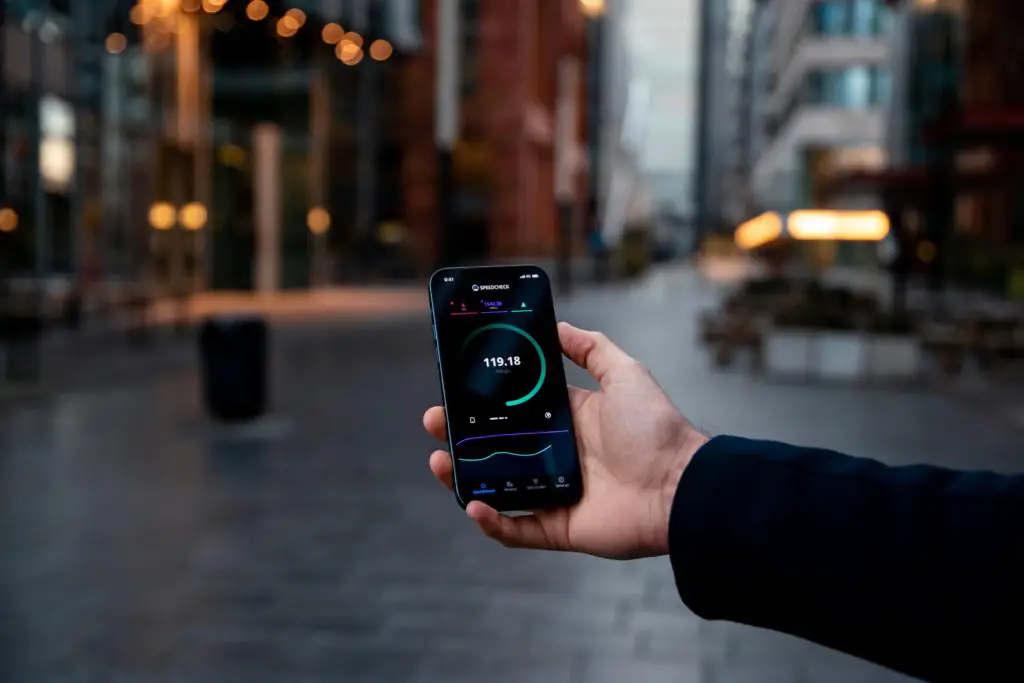The Internet has become an essential part of our day-to-day life, at least for this current century. Before that, there was no use of the internet to that extent. Only the people who were related to science or technology, for example, scientists or researchers would need the internet for their job. Here we will see about What Does Mbps Internet Mean?
Mbps stands for Megabits per second. Just like this, we have Kbps, Gbps, Tbps, etc where Kbps stands for Kilobit per second, Gbps stands for Gigabits per second and Tbps stands for Terabits per second. All these are measurement units for bandwidth and throughput. Sometimes, we can mix up Mbps with MBps. The difference is nothing but in bits and bytes. MBps with a capital ‘B’ letter represents Megabytes per second which is a bigger unit than that of Mbps or Megabits per second. Remember that, 1byte = 8 bits, that means, if we want to calculate Mbps to MBps or Mbps to Mbps, we have to divide and multiply by 8 correspondingly.

What Does Mbps Internet Mean?
What are Bandwidth and Throughput?
- Bandwidth: Bandwidth is something that represents the maximum amount of data that can be shared or transmitted within a given time over a network. We often mistake it with internet speed when it is related to the quantity of the transmitted data rather than the speed of the network on which the job of data transmission is going on. We can also measure bandwidth concerning Hertz.
(Note: Bandwidth with Hertz refers to the range of frequencies in a composite signal or other words, the range of frequencies that the channel can pass.)
- Throughput: We can say throughput is the measurement of how fast the data can be transmitted through a network. Sometimes it is misplaced with bandwidth per second or BPS but they are different. The throughput is the actual measurement of how fast we can send data.
Example: To clear the confusion we can imagine a highway that was constructed for 1000 vehicles transmission per minute. But, due to some congestion on the road, only 200 vehicles could transmit. So, here we can say the bandwidth is 1000 vehicles per minute while the throughput is 200 vehicles per minute.
Megabits vs Megabytes
We have been talking about Mbps and MBps for a long time but what do they differ from each other? It seems like we are more familiar with the term MBps rather than Mbps. From the very beginning, we heard about the terms like MB, GB, or even TB. The confusion arises with the naming convention. If your internet service provider says that they will provide you with 20 Mbps of bandwidth then they probably mean 20 Megabits per second and not 20 Megabytes. The main difference is in bits and bytes. Here is the measurement breakdown:
1 bytes (B) = 8 bits (b)
1 kilobyte (KB) = 8 kilobits (Kb)
1 megabytes (MB) = 8 megabits (Mb)
1 gigabytes (GB) = 8 gigabits (Gb)
So on….
Internet Plans to Choose:
While choosing the right internet plan, may become a bit difficult for us. Sometimes we go for higher data plans without knowing whether we would need that much data or not. Before deciding on a plan we need to think about some areas related to our usage. For example →
- Nature of the internet usage
- Total Number of users who will be using it.
- How much time you are on the internet.
Depending upon these, different ISPs have different data plans for their customers. Also, with the help of the below chart, you can calculate how much data you will need per day by yourself only.
You will need…
- 1 to 3 Mbps for internet or social media surfing.
- 3 to 5 Mbps for online video streaming.
- 2 to 4 Mbps for video conferencing.
- 5 to 7 MBps for streaming in HD quality
Conclusion
Now that we know what Mbps mean and what is the actual difference between MBps and Mbps, let us know another fact about the bandwidth. Our internet service providers indeed promise us to provide a high-speed network, is that the same amount that we expect? The actual upload and download speed always differ from what was promised. The range fluctuates between 70% to 80% of the mentioned speed by the providers. So before purchasing any data plan from now on, we should keep these things in mind.
Frequently Asked Questions
- What is the minimum recommended speed for downloading?
According to the FCC, the minimum recommended speed for downloading is 25 Mbps.
- What is the minimum recommended speed for uploading?
According to the FCC, the minimum recommended speed for uploading is 3 Mbps.
- What if FCC?
FCC stands for Federal Communication Commission. It is an agency that has the responsibility to manage communications over radio, satellite, cable, etc.
- What is the minimum bandwidth required for a student?
If a student is using the internet for online classes and courses only then it is recommended to have at least 30 Mbps of bandwidth.


